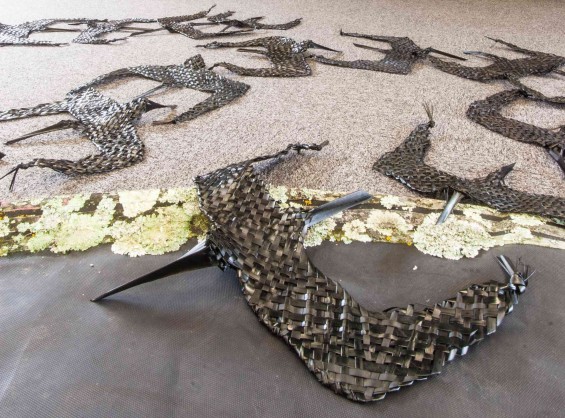Kiwi fishing industry seek to show they take bird life seriously
 A new tool for monitoring seabirds in fishing
A new tool for monitoring seabirds in fishing
Cameras placed on board fishing boats have been shown to be an effective way of counting seabird deaths during fishing. A recent trial on a vessel that fishes for Aotearoa Fisheries found that cameras can detect around 90% of seabirds caught on snapper longline hooks.
Snapper longline fishermen in northern New Zealand want to show the public that their operations are not putting seabirds at risk and have recently taken part in the trial of on-board cameras, which they hope will help them prove this.
The trial, which was a joint effort between the local fishing industry, DOC and MPI, was prompted because of the presence of a rare seabird that overlaps with the snapper and bluenose longline fleet.
Black petrels and other seabirds follow commercial and recreational fishing boats and try to remove bait from hooks and sometimes get caught in the process. Black petrels breed on Great Barrier and Little Barrier Islands and only 2700 breeding pairs remain.
Bottom longline fishermen set their lines at night when seabirds are less active, and add weights to the line so it sinks quickly out of the diving range of seabirds. And they want to show the public that their seabird captures are dropping.
The Department of Conservation funded the trial. “It’s vital to collect this data, and it can’t be done without the support and engagement of the fishing community,” says Meg Poutasi, DOC Partnerships Manager. “We are keen to help the fishing industry demonstrate their efforts are working, and support them where we can”.
Aotearoa Fisheries fisherman Adam Clow jumped at the chance to be involved in a trial. “I want to be transparent and show that what we’re doing is sustainable.” says Adam. “It’s a case of: if we are as good as we say we are, we need to prove it.”
The trial used fake seabirds woven out of flax, and these were attached to hooks at random times during normal line setting. A camera recorded the line being hauled on board and the footage was later reviewed blind – without the reviewer knowing how many seabird fakes were added to the line.
“There is a lot of potential for technology to support improved information gathering in our fisheries” says Dave Turner, Director Fisheries Management, at MPI. “It is very encouraging to see fishers so eager to be involved in developing innovative approaches”.
Trident Systems, which is a Limited Partnership of quota owners, provided the camera and carried out the trial.
Southern Seabird Solutions Trust is a collaborative alliance between Seafood New Zealand, the Ministry for Primary Industries, Department of Conservation, Te Ohu Kaimoana and WWF-NZ.
loading...
loading...



Voices of our community